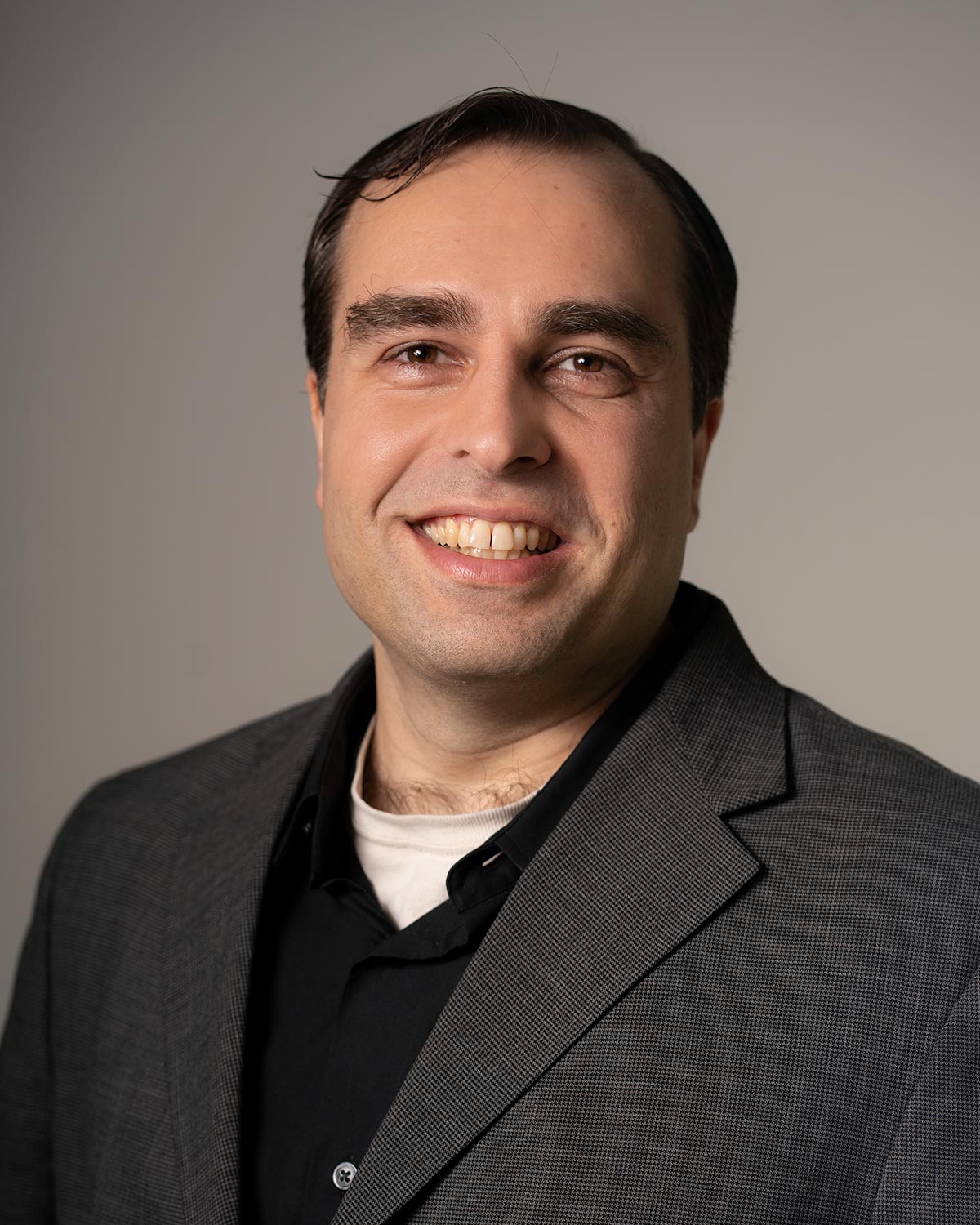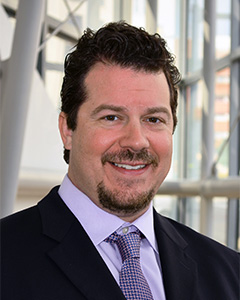Dean Walker Receives NSF Grant for Mentoring Program

Dean Walker joined a group of students at the Engineering Leader of the Year ceremony.
A grant proposed by CoE Dean and Distinguished University Professor Sharon L. Walker was funded by the National Science Foundation, “Engaging Women in Engineering: Training Mentors to Make a Difference.” This project will advance efforts by the Innovative Technology Experiences for Students and Teachers (ITEST) program by preparing high-achieving high school students for advanced science and math courses, and eventually courses in engineering. ITEST seeks to better understand and promote practices that increase students’ motivations and capacities to pursue careers in the fields of science, technology, engineering, and mathematics (STEM).
Project research will investigate how and to what extent a largely homogeneous group of working engineers can enter mentoring relationships that increase participation in their fields by underrepresented populations. The projects will use mixed-methods and quasi-experimental design. Multiple data sources, such as classroom observations, interviews, and surveys/assessments to measure student and mentor outcomes, are a part of the project.
The project will enroll adult mentor candidates in a full year of professional development training in culturally relevant pedagogies – including tactics to combat stereotype barriers and implicit biases – prior to entering mentoring relationships.
Dr. Savidis Receives ONR DURIP Equipment Award

Dr. Ioannis Savidis
Dr. Ioannis Savidis, assistant professor in the Department of Electrical and Computer Engineering (ECE), has received a $586K equipment grant from the Office of Naval Research through the Defense University Research Instrumentation Program (DURIP) for his project titled, “Testbed for Experimental Validation of Security Techniques for the Protection of Circuit Integrity.” The grant was announced in March.
The grant will fund the purchase of a probe station, a Network Analyzer, a high-frequency Oscilloscope, a Signal Analyzer, and a 3-phase Power Analyzer.
“The testbed will be used to experimentally validate much of our research efforts in hardware security,” said Savidis. “Specifically, we are in the process of designing test circuits that will be fabricated through MOSIS foundry services that will validate the techniques we have been developing to secure critical intellectual property in both the analog and digital domains.”
CoE Scores Big in “40 Under 40” Selection

Drexel Magazine has selected 40 alumni under the age of 40 for its Winter/Spring 2019 compendium of alumni to watch. We are pleased to announce that the group includes 10 CoE alums. Among them are:
- Adam Carlson, 31, BS in ECE ’11, patent engineer: “Drexel’s engineering program not only provided me with a wealth of technical knowledge, it also taught me problem-solving skills that I often find myself relying upon in both legal and business settings.”
- KJ Dhaliwal, 28, BS/MBA in Systems Engineering, Business and Entrepreneurship ’13, startup founder: “I became a better entrepreneur thanks to Drexel, and many of the things I learned during my time at Drexel still guide me today (such as fail fast and fail often!).”
- Greg Donworth, 25, BS in MEM ’16, program management analyst: “As a mechanical engineering student, I lacked experience on how to start, operate, and grow a business. Joining the Baiada Institute startup incubator within the Close School of Entrepreneurship allowed me to become surrounded by small business operators, academics, and like-minded individuals who helped to develop me into an entrepreneur.”
- Farrah Moldover, 31, BS in MSE ’11, general engineer: “Drexel offered in-class education, lab work, and extensive on-the-job experience. The co-op program allowed me to pursue different technical experiences and niches within my field, leading to a dynamic résumé and a greater advantage in finding employment. In addition, Drexel’s STAR method had me well prepared for the interview process.”
- Prineha Narang, 29, BS in MSE ’11, computational materials scientist: Narang studies materials at the quantum level, using mathematics, physics, and computing power to create models and experiments that allow scientists to engineer technologies of the future, atom by atom.
- Carl Oberg, 32, BS in CAEE ’11; MS in Civil Engineering ’16, structural bridge engineer: “Throughout my seven years working at Pennoni, I have worked on a number of very interesting and complex bridge design projects. One I am most proud of was the I-676 Vine Street Expressway Bridge Rehabilitation Project in Center City Philadelphia. The $65-million project consisted of the replacement of seven two-span, non-composite adjacent concrete box beam bridges spanning the freeway with new single-span composite steel plate girder bridges.”
- Alex Roscoe, 34, BS in ECE ’13; Eric Eisele, 32, BS in MSE ’09, startup founders: “I think we are kind of at the cusp of the next frontier of agriculture.”
- Jessica E. Snyder, 32, MS/BS in MEM ’09; PhD in Mechanical Engineering ’14, scientist: “As a mechanical engineering student, I worked with Albert Soffa Chair Professor Dr. Wei Sun in his Biofabrication Lab to design and patent a method to 3D print living cells that has since been licensed for commercial development. I translated this method from regenerative medicine to industrial design in support of human space missions in the 2020s. Within NASA’s Space Science and Astrobiology Division, I use biology and 3D printing to manufacture objects for habitats where natural resources are scarce and that are inaccessible to supply chains.”
- Andrew Zwarych, 29, BS in ECE ’13, digital manager: “(In five years) I plan to still be doing digital strategy within professional soccer, whether it’s with the Union, MLS or some league overseas. With the 2026 World Cup on the horizon, being part of its organizing committee would be a dream come true.”
Read the full article in Drexel Magazine.
Dr. Fontecchio Co-PI on Vining Grant

Dr. Adam Fontecchio
Dr. Adam Fontecchio, professor in the Department of Electrical and Computer Engineering (ECE) and Director of the Center for the Advancement of STEM Teaching and Learning Excellence (CASTLE), has been named a co-principal investigator on a $275K grant from The Arthur Vining Davis Foundations to support, “Research on Experiential STEM Curricula for Authentic Learning Experiences (RESCALE)."
The award is a Drexel University presidential priority and, as such, Fontecchio worked with PI Dr. Jennifer Stanford, an associate professor in the Biology Department and Co-Director of CASTLE, and Drexel University President John Fry in pursuit of the grant.
The Vining Foundation, established in 1952, seeks to strengthen American intellectual capital through support of scientific, literary, and educational enterprises. Since its creation, the Foundation has provided more than $300M in grants to institutions of higher education, hospitals, medical schools, and divinity schools.
Dr. Walsh Speaks at US Patent & Trademark Office

Dr. John Walsh
Dr. John Walsh, associate professor in the Department of Electrical and Computer Engineering (ECE), presented at the US Patent and Trademark Office's (USPTO) “Artificial Birds of a Feather” session last month. His talk focused on his research in machine learning for patent processing, which has been tested by a researcher working for the European Patent Office.
Additionally, Dr. Walsh participated in discussions about how the USPTO can better engage academic institutions to help implement artificial intelligence improvements in patent examination.
Best Undergrad Poster Award to Mendoza ’19

Isabella Mendoza with her award-winning poster
Congratulations to Isabella Mendoza, BS ’19 in the Department of Materials Science and Engineering (MSE), who won the Best Undergraduate Student Poster Award in the Structural Materials Division for her work in damage behavior of polymer matrix composites from The Minerals, Metals and Materials Society 2019 Annual Meeting and Exhibition. The meeting gathers professionals and students from over 70 nations, who met in San Antonio, TX.
Mendoza is mentored by Dr. Leslie Lamberson of the Dynamic Multifunctional Materials Laboratory (DMML) and associate professor in the Department of Mechanical Engineering and Mechanics (MEM). Mendoza’s poster, “Identifying Damage Initiation of Woven Fiberglass Composites Under Compression,” investigates model polymer matrix composites used in naval aircraft and marine structures. Specifically, it quantifies the initiation of damage evolution in compression, developing an experimental and analytical damage model across both low- and high-loading rates.
Dr. Snyder Wins NSF Grant
Dr. Joshua Snyder, assistant professor in the Department of Chemical and Biological Engineering (CBE), has been awarded a $20K National Science Foundation grant for assistance with his project, “Conference Proposal: Third International Symposium on Nanoporous Materials by Alloy Corrosion.” The award started last month and runs through the end of August 2019.

Dr. Joshua Snyder
The abstract outlines the need for the Symposium here in Philadelphia: “The nanoporous metals and dealloying community has been a close and active group dating back to the mid 90’s…. While seemingly narrowed and specific, dealloying and nanoporous materials are perhaps the only example of a scalable nanostructured metallic material. As a result, they have seen broad applicability over wide topical areas including corrosion, catalysis, mechanical properties, radiation damage tolerance, biomaterials, surface science, etc. Therefore, presentations, publications, and other means of scientific research dissemination have been diluted over a broad range of symposiums at different scientific conferences and publication outlets.
“The traditional meeting place for those in the field has been large national annual meetings including AIChE, ECS, and MRS. Consequently, due to the broad umbrella under which specific research projects may fall, presentations are distributed over many symposia. This dramatically lowers the probability of interaction among the dealloying and nanoporous metals community at these large conferences. For these reasons, the dealloying community came together six years ago and established a meeting solely dedicated to researchers in this area.
“Following two successful conferences in Germany … we have been selected to hold the meeting in the United States. The one limitation of the previous two iterations of this meeting was that the travel expense to attend the meeting in Germany limited the involvement from graduate students at US universities. We argue that the reduced travel costs associated with holding the meeting in Philadelphia will encourage increased graduate student participation.”
Gogotsi Group Publishes in Nature Energy

A group of researchers and students in the A.J. Drexel Nanomaterials Institute and Department of Materials Science and Engineering (MSE) under Principal Investigator and Institute Director Yury Gogotsi are co-authors on the paper, “Influences from solvents on charge storage in titanium carbide MXenes," published last month in Nature Energy.
The Drexel University co-authors include Xuehang Wang, Tyler S. Mathis, Christine Hatter, Patrick Urbankowski, Asia Sarycheva, former group member Ke Li, and Gogotsi.
“In this study, we demonstrate that the choice of the electrolyte solvent plays a significant role in determining the Li-ion intercalation process for Ti3C2 MXene electrode in organic electrolytes,” the co-authors wrote in the article. “We show that properly matching the electrolyte composition to the electrode material is essential for controlling the charge-storage mechanism and is necessary for achieving superior electrochemical performance.”
The research was carried out with scientists from the Department of Energy’s Oak Ridge National Laboratory (ORNL) and the University of Tennessee, and includes the first disclosure of the Nanomaterials Institute’s work with Murata Manufacturing of Kyoto.
“Congratulations to Xuehang, Tyler, Christine, Patrick and Asia, as well as our former group member Ke Li, on this excellent publication,” said Dr. Yury Gogotsi, the Charles T. and Ruth M. Bach Distinguished University Professor in Materials Science and Engineering. “They had to dig deep to understand the mechanism for capacitance change as a function of solvent used. Some great science came out of that multifaceted study done with help from collaborating teams from ORNL and France.”